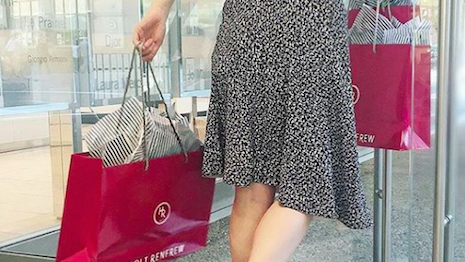
Consumers
Affluents Aim to Feel Confident in Their Purchasing Decisions
by
Brielle Jaekel | June 16, 2017
As luxury continues to struggle to compete with new-wave retail that provides product of equal quality, but at lesser price points, marketers should focus on deep core values to strike a cord with affluent consumers.
Research from YouGov is showing that 82 percent of affluent consumers prefer brands that are relatable. Quality is still the main driver in purchasing decisions for affluent consumers, but quality no longer has to mean a high price tag.
"The non-luxury market is competing with luxury brands in quality," said Chandler Mount, vice president at YouGov. "Affluent PerspectiveAdvances in technology and investment in premium materials have put mainstream brands in the consideration set along with luxury brands for affluent consumers.
"So now, 'Quality' is not driving final purchase decisions. Instead, we see that some affluent consumers make the final decision based on traditional symbols of 'Status' (success, privilege, rarity)," he said. "While others look to more human attributes—brands that share their values, and seem honest—what we call 'Meaning.'"
Insights from the affluent
Affluent consumers who like brands for their quality products make up 93 percent of the YouGov Affluent Perspective 2017 Global Study's respondents.

Affluent shoppers look for quality
Worldwide, 71 percent of wealthy consumers believe that non-luxury brands can have an equal level of quality in their products compared to luxury brands.
Other factors affluent shoppers look for when purchasing are if it makes them feel successful, privileged or that the product is something rare. Sixty-one percent of respondents look for the feeling of success, 58 percent for feeling privileged and 57 percent look for rarity.
Another 82 percent look for brands that share their core values. However, the main driver behind purchasing decisions for the affluent is feeling confident they are making the correct choice.
In fact, 89 percent claim to look for brands that make them feel confident in their purchasing decisions.

Wealthy consumers value confidence while shopping
Luxury houses that are able to embed intangible qualities into their brand and products will fare better than those that do not.
Additional insight
The wealthiest consumers in the United States, those most likely to patronize luxury brands, are just as evenly split in opinion on the divisive new president as the rest of the country.
This data also comes from YouGov’s Affluent Perspective Global Study 2017, which looked at the perspective of affluent consumers around the world and how those perspectives affect their shopping habits. What the research found was that the affluent class in the U.S. is split almost down the middle on President Trump, and each side is firmly entrenched in their feelings (see more).
Despite luxury brands being notoriously slow to adopt mobile technology, a new report from ContentSquare found that 73 percent of luxury buyers browse via the small screen.
Luxury marketers who do not have an optimal mobile experience are missing out on a huge opportunity, according to ContentSquare. Affluent consumers that purchase luxury products take less time looking at each product online compared to the standard buyer and make up their purchasing decisions via emotion (see more).
"Luxury consumers are evolving their purchase consideration process," Mr. Mount said. "They want a brand that is trustworthy, competent, consistent, and easy to work with while also satisfying their underlying emotional need, be it Status or Meaning."
Article originally published on Luxury Daily - Reproduced with permission.

